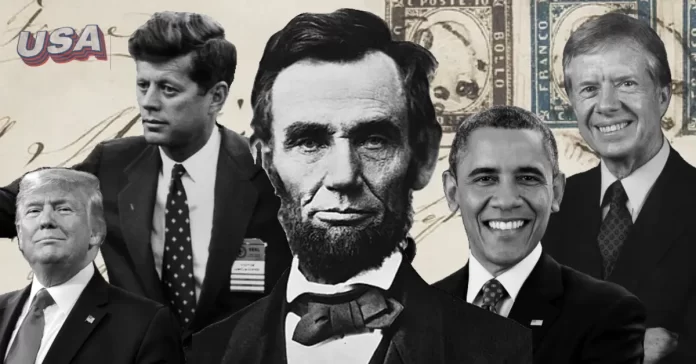The significance of prior experience for US presidents remains a subject of debate in American politics. Some historians argue that presidents with non-political backgrounds struggle to effectively lead parties and establish strong administrations, while others hold a different perspective. To help shape your own viewpoint, let’s briefly examine the previous experiences of the past 20 US presidents, starting with Theodore Roosevelt.
Brief overview
Theodore Roosevelt, born in 1858 into a wealthy family in New York City, faced severe asthma during his childhood. Despite medical advice to avoid physical exertion, he defied it and pursued rigorous exercise, which proved beneficial. This experience shaped his belief in “The Strenuous Life,” which he passionately advocated and delivered a speech on in 1899. Following his studies in natural sciences at Harvard, Roosevelt briefly attended Columbia Law School but decided to embark on a Republican political career, leading him to drop out.
Tragedy, Adventure, and Presidential Legacy
Theodore Roosevelt’s life was a mix of tragedy and adventure. After losing his mother and wife on the same day in 1884, he ventured into the Dakota Badlands, working as a sheriff, hunting bears, and owning two ranches. Back on the East Coast, he resumed his political career, becoming a president who significantly expanded executive authority through over 1,000 executive orders.
William H. Taft’s notable career in public service is often overshadowed by a bathtub incident during his presidency. He excelled as a prosecutor, judge, Governor-General of the Philippines, and Roosevelt’s secretary of war. After his presidential term, he became a Yale law professor and later Chief Justice of the United States.
Woodrow Wilson – Scholarly Pursuits and Presidential Leadership
Woodrow Wilson, the 28th President of the United States, had a distinct journey that involved academia and political philosophy. With extensive studies in political science, law, and political philosophy, Wilson earned a PhD from Johns Hopkins University, distinguishing him as the sole president with a doctorate. In his doctoral thesis, he advocated for the adoption of the British parliamentary system in the United States. Wilson’s scholarly pursuits continued as he served as a law professor at Princeton, authored influential books on U.S. history and George Washington, and eventually became the President of Princeton University.
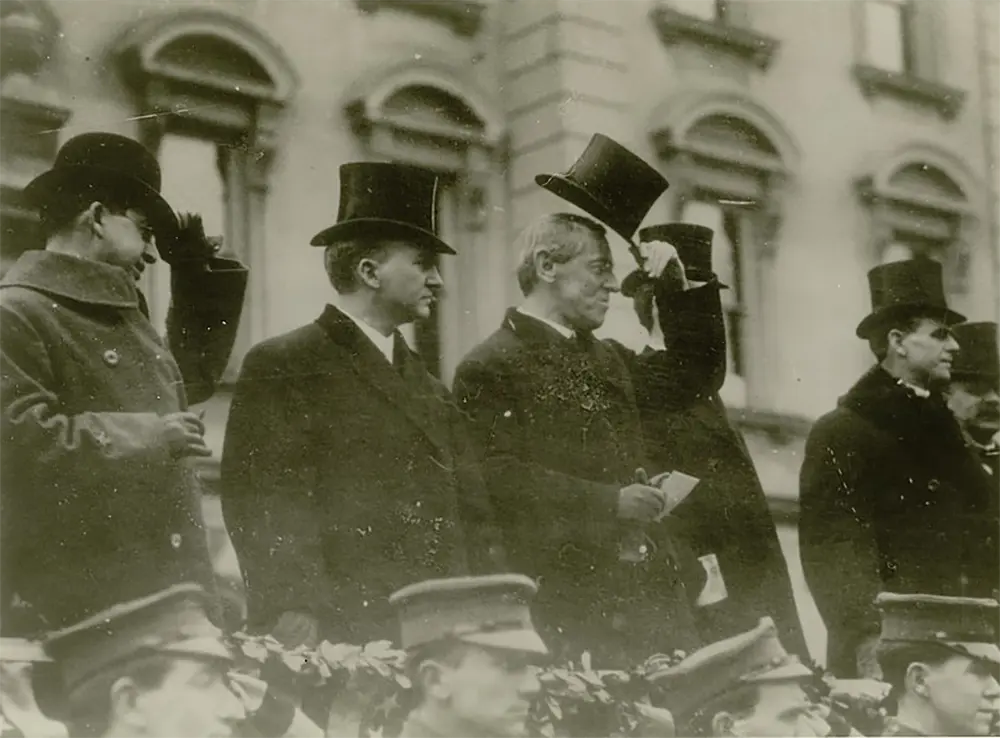
Woodrow Wilson – Progressive Reforms and Controversial Legacy
Rephrased paragraph: Woodrow Wilson, the 28th President, implemented progressive policies such as the federal income tax and the Federal Reserve System. However, his presidency was also marked by the segregation of government offices, which remains a point of controversy.
Warren G. Harding – From Newspaper Entrepreneur to President
US Presidents Warren G. Harding, the 29th President, started his path to the presidency by purchasing a struggling newspaper. He later became a successful politician, serving in the Ohio State Senate and as lieutenant governor before his rise to the presidency.
Calvin Coolidge – The Silent Servant of Small Government
Calvin Coolidge, the 30th President, was known for his quiet demeanor and dedication to public service. He successfully reduced the national deficit, cut taxes, and streamlined government operations during his tenure.
Herbert Hoover – From Orphan to Humanitarian Leader
US Presidents Herbert Hoover’s life took a surprising turn with the outbreak of World War I. From humble beginnings as a Quaker orphan working in a gold mine, he rose to own a successful mining consulting firm. When called upon to organize rescue missions for stranded Americans, Hoover efficiently evacuated 120,000 individuals. He also led the Committee for the Relief of Belgium, raising millions for food and medicine in German-occupied regions. President Wilson recognized his achievements, appointing him to key positions, including the U.S. Food Administration and European relief efforts.
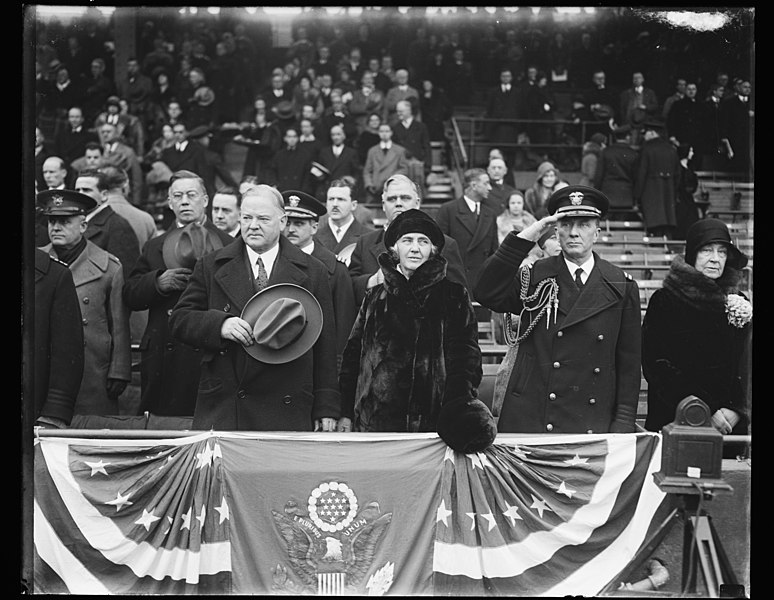
Franklin D. Roosevelt – Overcoming Adversity for Progressive Change
US Presidents Born into a privileged family in New York, Franklin D. Roosevelt drew inspiration from his distant cousin Theodore Roosevelt, a former U.S. President. Despite contracting polio in 1921, which left him paralyzed, Roosevelt pursued his political career. He served as governor of New York during the stock market crash and implemented progressive policies to provide economic aid and unemployment assistance, offering support to struggling families.
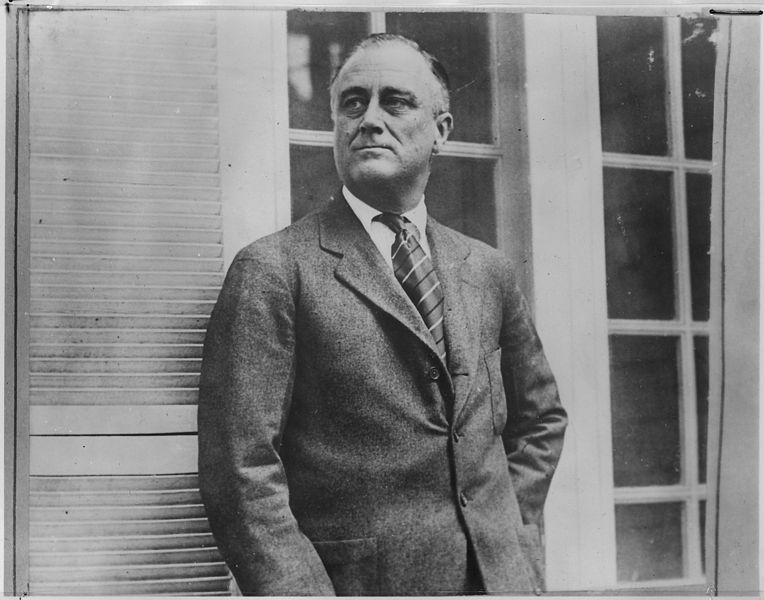
Franklin D. Roosevelt – Leading Through the Great Depression
In the midst of the Great Depression, Franklin D. Roosevelt assumed the role of the 32nd President of the United States in 1933. In his inauguration speech, he instilled hope by assuring Americans of a prosperous future. Within his first 100 days in office, Roosevelt implemented his transformative “New Deal” program, which involved extensive public works projects, financial reforms, and the establishment of federal agencies to mitigate the effects of the economic downturn.
Harry S. Truman – A Journey to the Presidency
US Presidents Harry S. Truman’s path to the presidency was paved with various experiences. After serving in World War I and encountering business failures, Truman ventured into politics. He served as a county judge in Missouri and was later elected to the U.S. Senate. In 1944, Truman was selected as Franklin D. Roosevelt’s running mate and assumed the vice presidency. Following Roosevelt’s passing in 1945, Truman ascended to the presidency.
Dwight D. Eisenhower – From General to President
US Presidents Dwight D. Eisenhower, hailing from Texas, cultivated a passion for sports and nature from a young age. Enrolling at West Point, he climbed the military ranks and emerged as a general during World War II. Notably, he orchestrated the successful Normandy Invasion. As the 34th President of the United States, Eisenhower pursued a Republican agenda centered on reducing government control over the economy and implementing tax cuts. He also cautioned against the influence of the military-industrial complex in government affairs. Dwight D. Eisenhower, with his upbringing in Texas and love for the outdoors, military history, and sports, climbed the ranks at West Point to become a World War II general. Orchestrating the monumental Normandy Invasion, he later transitioned into politics, winning the presidency as a Republican. His administration prioritized reducing government control, ending the Korean War, expanding NASA, and issuing a notable warning about the military-industrial complex.
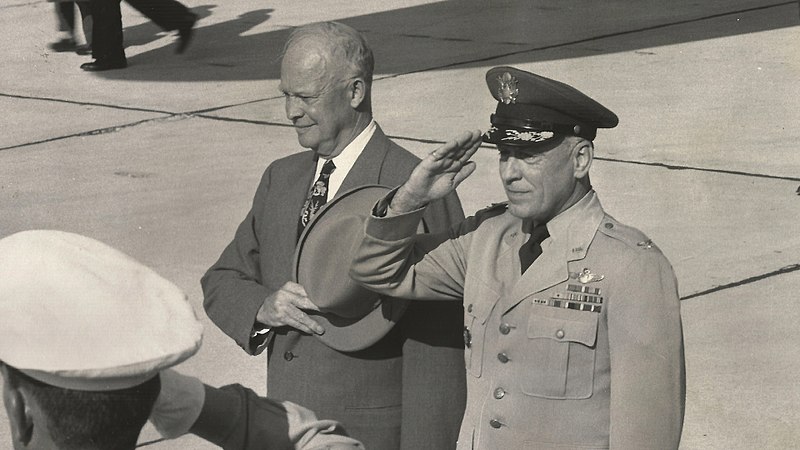
John F. Kennedy – Inspiring Leadership Cut Short
John F. Kennedy, the youngest elected president in U.S. history, made a lasting impact despite his untimely death. With a privileged yet challenging early life, Kennedy served in World War II before embarking on a successful political career. As president, he championed civil rights, initiated the Peace Corps, and left an enduring legacy through his famous call to civic duty.
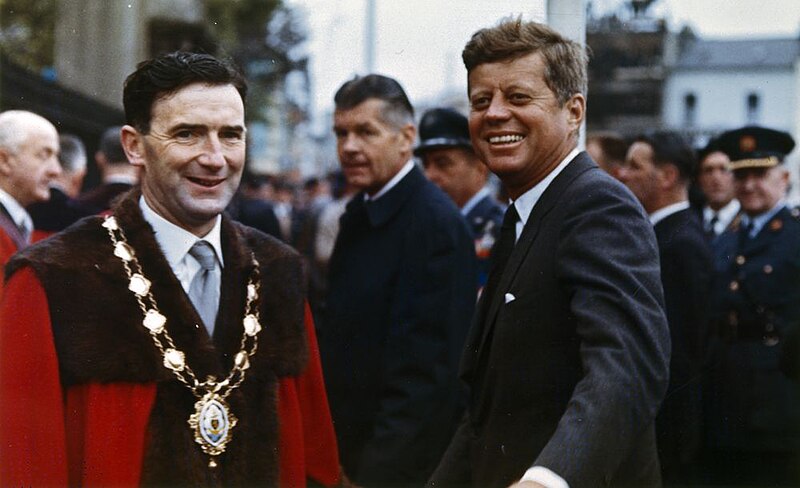
Lyndon B. Johnson – From Poverty to Presidency
Lyndon B. Johnson’s remarkable ascent from poverty to political power showcased his tenacity. Rising from humble beginnings, Johnson earned a college degree, served in Congress and the Navy during World War II, and eventually became president after Kennedy’s assassination. While his domestic policies aimed at fighting poverty and expanding civil rights, his involvement in the Vietnam War overshadowed his domestic achievements.
Richard Nixon – A Complex Political Journey
US Presidents Richard Nixon’s path to the presidency was marked by ups and downs. After studying law and serving in World War II, Nixon entered politics, earning a reputation as “Tricky Dick.” As Eisenhower’s vice president, he showcased foreign policy expertise. Despite losing the 1960 election to Kennedy, Nixon’s political career continued to unfold, leading to his eventual presidency, where his achievements were overshadowed by the Watergate scandal.
His journey to the presidency had its twists and turns. Despite a failed gubernatorial campaign in California, Nixon made a comeback and triumphed in the 1968 presidential election. However, his road to the White House was anything but straightforward, as he faced challenges and controversies along the way.
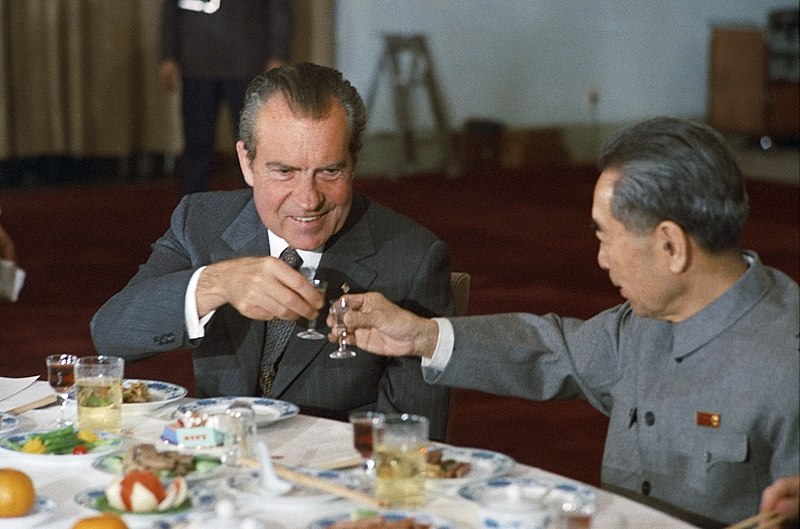
Gerald Ford – From All-American Athlete to President
Gerald Ford embodied the all-American ideal, from his early days in Nebraska to his successful football career and law studies at the University of Michigan. After engaging in sports coaching and establishing a law practice, Ford’s path led him to regional politics and eventually the U.S. Navy. His congressional victory, followed by his selection as Vice President, set the stage for his eventual assumption of the presidency.
Jimmy Carter – From Peanut Farmer to Nobel Laureate
US Presidents Jimmy Carter’s journey began with service in the U.S. Navy and returning to his family’s peanut farm in Georgia. Building political experience, he climbed the ranks from local boards to governorship, eventually securing the presidency. Carter’s notable achievement was winning the Nobel Peace Prize during his time in office.
Ronald Reagan – From the Heartland to Hollywood and Beyond
Ronald Reagan, although associated with the rugged American West, originated from a middle-class family in Illinois. Excelling in high school, he pursued football, acting, and lifeguarding before studying economics and sociology at Eureka College. His career took a turn towards Hollywood and later shifted to conservative politics as the Governor of California. Reagan’s presidency embraced “Reaganomics” policies focused on deregulation, tax cuts, and limited government spending.
George H.W. Bush – From War Hero to Presidential Nominee
George H.W. Bush’s journey began as a courageous young man who enlisted in the Navy at eighteen and became the youngest pilot in history to earn his wings. He served in World War II, flying numerous combat missions and receiving the Distinguished Flying Cross for his bravery. After the war, Bush pursued education, founded an oil development company, and emerged as a prominent figure in the Republican Party. His experience as Ronald Reagan’s vice president propelled him to secure the Republican presidential nomination in 1988.
Bill Clinton – Overcoming Adversity to Pursue Public Service
Bill Clinton faced a challenging childhood, with the loss of his father and the abuse from his stepfather. Despite the hardships, he developed empathy and chose a path in public service. Clinton’s passion for politics ignited when he met President John F. Kennedy, leading him to actively engage in politics during his time at Georgetown University and later attend Yale Law School. His political career flourished in Arkansas, where he served as attorney general and governor before successfully running for the presidency in 1992, serving two terms marked by significant achievements and controversies.
George W. Bush – Following in His Father’s Footsteps
US Presidents George W. Bush’s life and political career paralleled his father’s, albeit with some differences. He received education from prestigious universities, served in the Texas Air National Guard, and ventured into the oil industry. After gaining valuable experience as an advisor on his father’s campaigns, Bush embarked on his own political journey, winning the Texas governorship. In 2000, he secured the Republican nomination and emerged victorious in a closely contested presidential election.
Barack Obama: From Diverse Background to Historic Presidency
Barack Obama, born in Hawaii in 1961, experienced a multicultural upbringing in Indonesia and Hawaii. Raised by his mother and grandparents, he embarked on a journey that would lead him to become the first Black president of the United States. From his early days at Occidental College to his historic presidency, Obama’s path was marked by community organizing, legal education, and a commitment to social reform.
The Rise of Barack Obama: A Trailblazer in Law and Politics
Barack Obama’s journey from community organizer to president began with his studies at Columbia University. After graduating, he enrolled in Harvard Law School, where he became the first Black president of the prestigious Harvard Law Review. Returning to Chicago, Obama tirelessly worked as a community organizer, law professor, and advocate for voter registration. His political career took off with his election to the Illinois Senate in 1996, where he championed issues like campaign finance reform, criminal justice reform, and improved healthcare for disadvantaged families.
A Message of Hope: Obama’s Path to the Presidency
US Presidents Barack Obama’s historic rise to the presidency was propelled by his inspiring message of hope. Following a captivating speech at the Democratic National Convention in 2004, he captured the attention of the American public. In 2008, Obama shattered barriers and made history as the first Black president of the United States. Throughout his tenure, he enacted significant policies, such as the Affordable Care Act and advancements in LGBTQ+ rights. However, his presidency was not without challenges, as he confronted the Great Recession and the threat of terrorism.
Donald J. Trump: The Business Tycoon Who Made His Mark
After graduating from the University of Pennsylvania’s Wharton School of Finance, Donald J. Trump embarked on a remarkable career in real estate. Taking over his father’s business, he transformed it into the Trump Organization, leaving an indelible mark on the industry. Notable accomplishments include the conversion of the Commodore Hotel into the renowned Grand Hyatt Hotel and the construction of iconic landmarks like Trump Plaza and Trump Tower.
Donald J. Trump: A Journey of Ups and Downs
Donald J. Trump ventured into casino development in the 1980s but faced financial challenges, leading to multiple bankruptcies. He found success in the entertainment industry, owning beauty pageants and starring in “The Apprentice.”
Trump’s ventures included Trump University, which closed in 2010 amidst lawsuits and a settlement payment of $25 million in 2018.
Despite considering a presidential run since 2000, Trump officially announced his candidacy in 2015, becoming the only president without prior military or public service experience.

